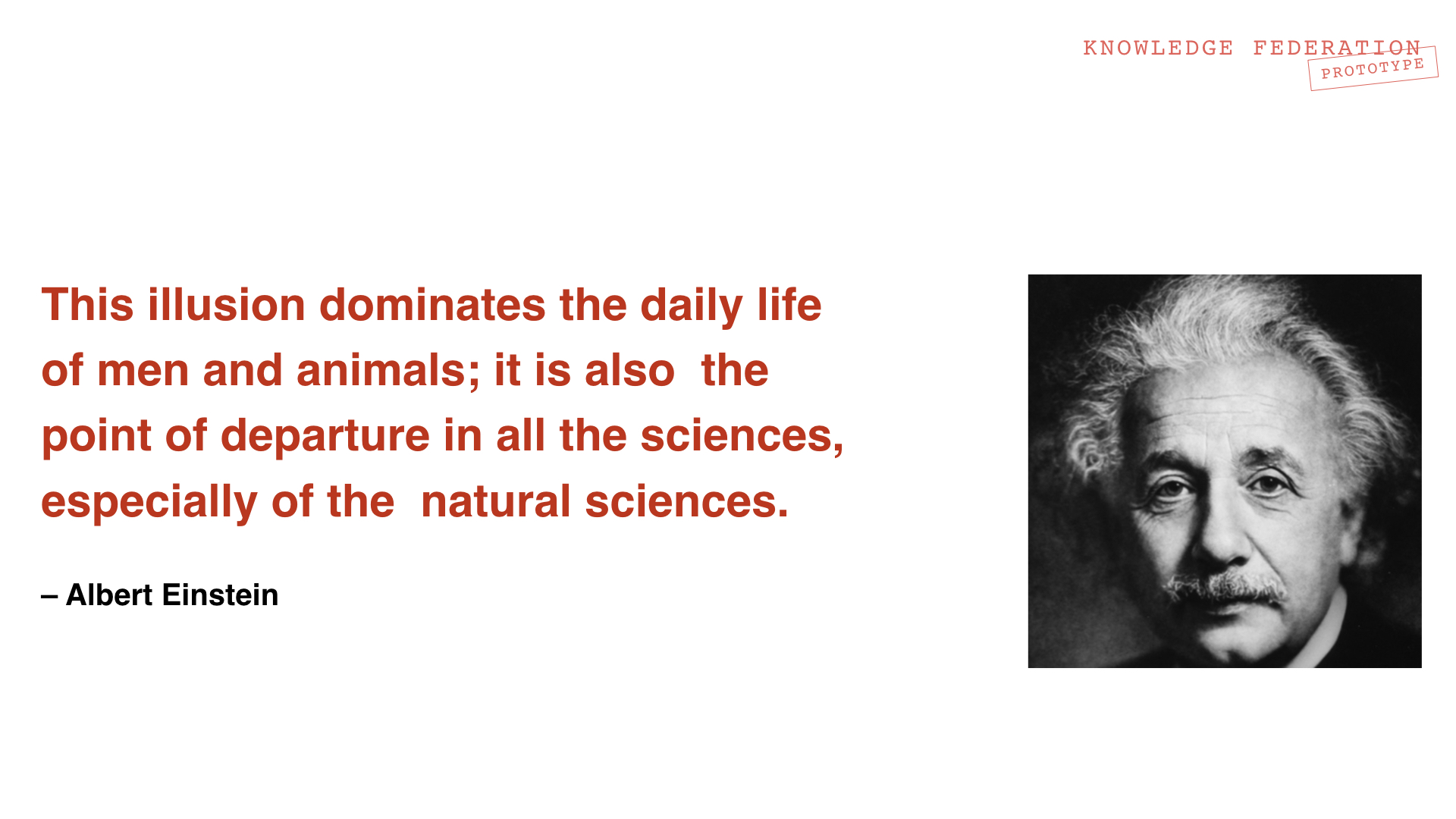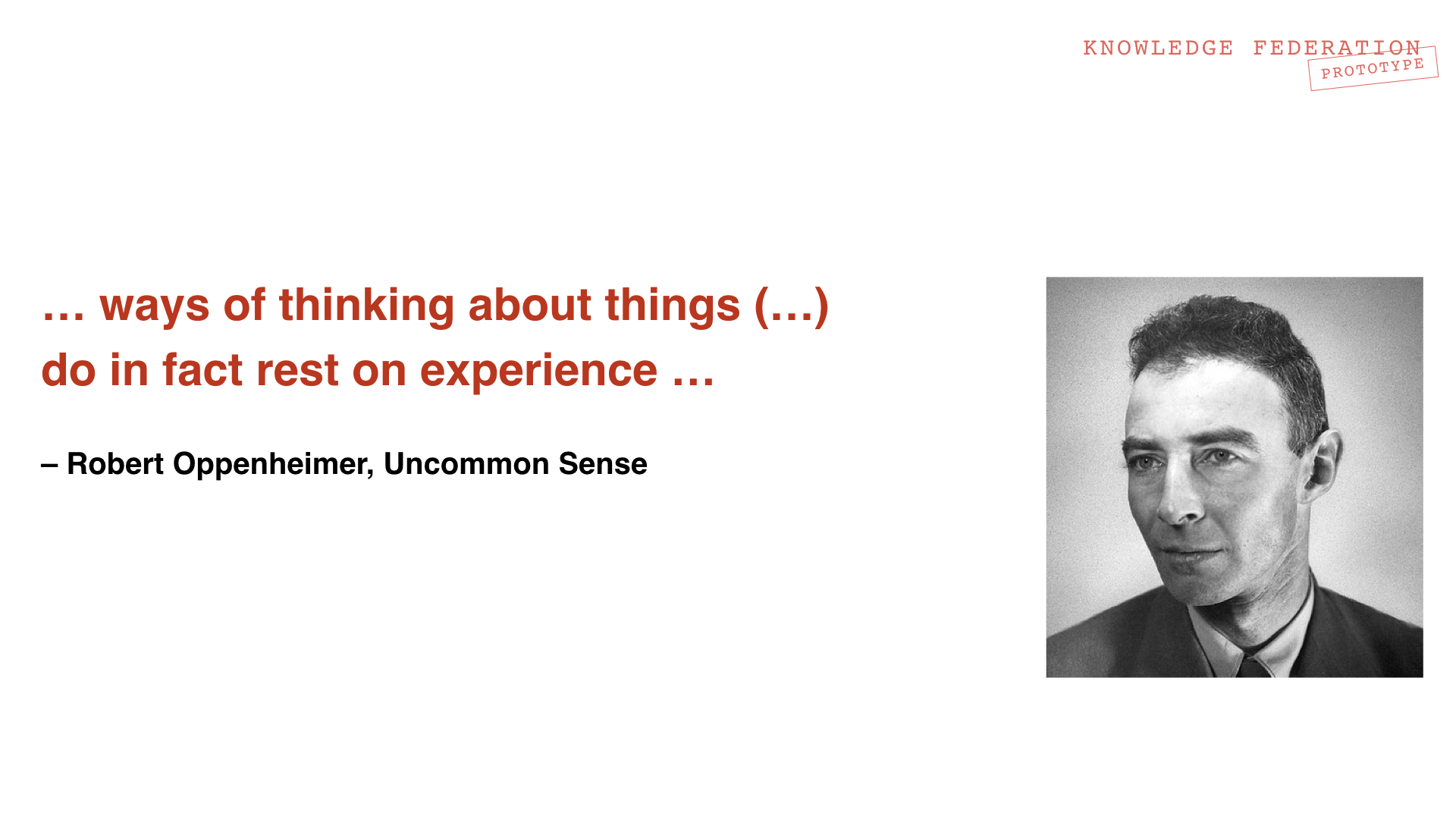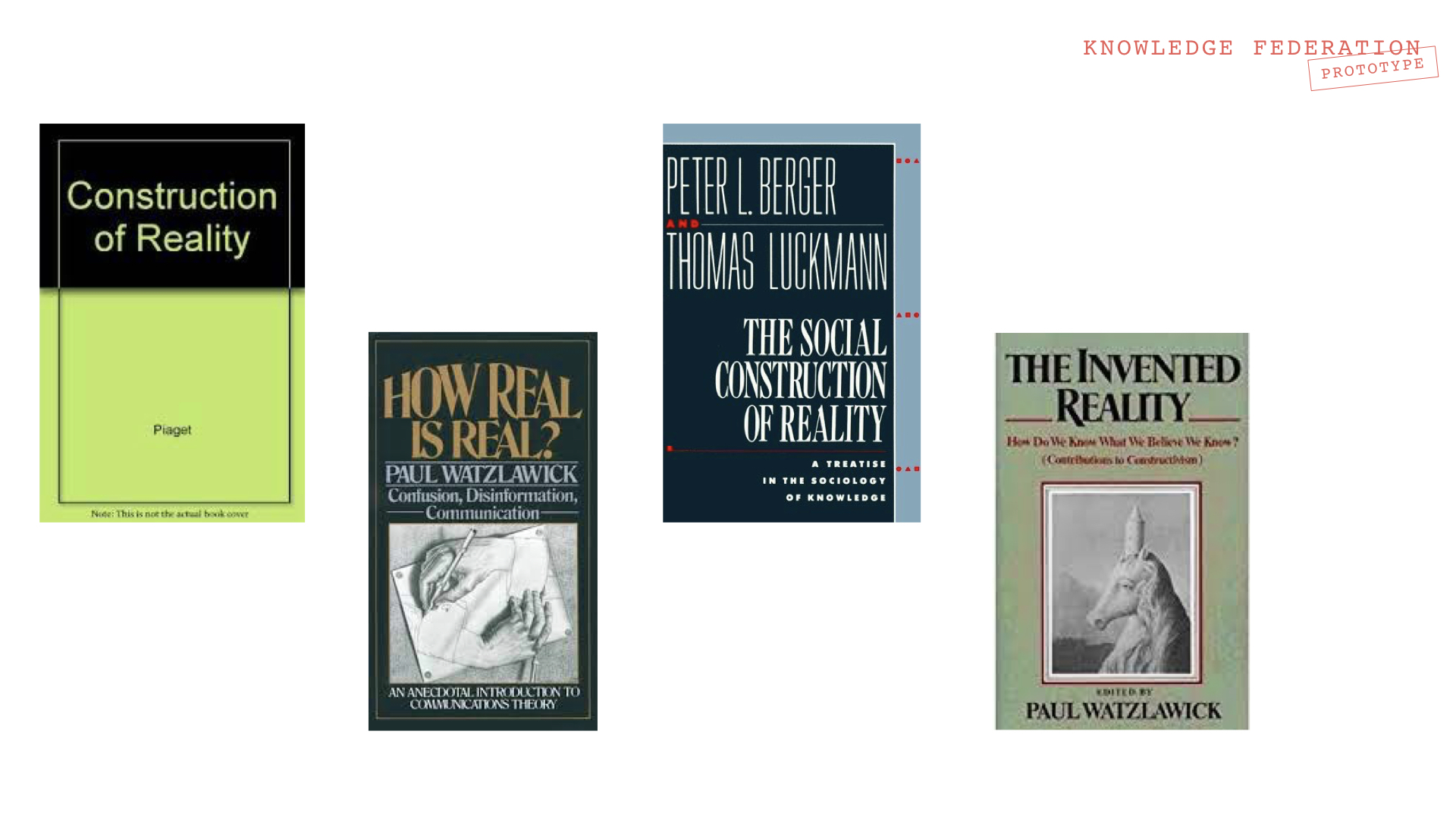Difference between revisions of "Holotopia: Socialized reality"
m |
m |
||
| Line 12: | Line 12: | ||
<p>Our situation, however, is calling for that we revisit and reconfigure that very <em>foundation stone</em> on which the edifice of our culture has been constructed.</p> | <p>Our situation, however, is calling for that we revisit and reconfigure that very <em>foundation stone</em> on which the edifice of our culture has been constructed.</p> | ||
<p>Before we begin, let us emphasize once again that our goal is <em>not</em> to critique our present <em>foundations</em>; or even to propose new and better ones. Our goal is both more humble and more ambitious than that—namely <em>to initiate and develop a social process</em> through which the assessment and improvement of our culture's <em>foundations</em> will be kept in sync with our <em>knowledge of knowledge</em>, and with our society's needs. </p> | <p>Before we begin, let us emphasize once again that our goal is <em>not</em> to critique our present <em>foundations</em>; or even to propose new and better ones. Our goal is both more humble and more ambitious than that—namely <em>to initiate and develop a social process</em> through which the assessment and improvement of our culture's <em>foundations</em> will be kept in sync with our <em>knowledge of knowledge</em>, and with our society's needs. </p> | ||
| − | |||
| − | |||
| − | |||
</div> </div> | </div> </div> | ||
Revision as of 13:21, 11 May 2020
H O L O T O P I A: F I V E I N S I G H T S
Socialized reality
Let us federate our culture's foundations
From the traditional culture we inherited a myth incomparably more subversive than the myth of creation. That myth now serves as the foundation stone on which the edifice of our culture has been erected.
That error is, however, easy to understand and forgive, if we take into account that the idea that "truth" means "correspondence with reality" is coded not only in our common sense, but also in our very language. When I write "worldviews", my word processor underlines it in red. The word "worldview" doesn't have a plural form; since there is only one world, there can be only one worldview—the one that corresponds to that world.
Our situation, however, is calling for that we revisit and reconfigure that very foundation stone on which the edifice of our culture has been constructed.
Before we begin, let us emphasize once again that our goal is not to critique our present foundations; or even to propose new and better ones. Our goal is both more humble and more ambitious than that—namely to initiate and develop a social process through which the assessment and improvement of our culture's foundations will be kept in sync with our knowledge of knowledge, and with our society's needs.
Stories
"Reality" is a myth
The common belief that "truth" means "correspondence to reality", and that our ideas, when they are "true", correspond to reality, has been shown to be (1) impossible to verify and (2) a common product of illusion (see our story argument here).
Why base our creation of truth and meaning, and our pursuit of knowledge—which are all-important human activities—on a criterion that cannot be verified; and which itself tends to be a product of illusion?
Causal comprehension is not a reality test
It takes only a moment of reflection to see just how much the "aha feeling"—when we understand how something may result as a consequence of known causes—has been elevated to the status of the reality test. But is it really that?
The Enlightenment empowered the human reason to comprehend the world. Science taught us that women cannot fly on brooms—because that would violate some well established "natural laws". Innumerable prejudices and superstitions were dispelled.
But we've also thrown out the baby with the bathwater!
Reason cannot know "reality"
Even our common sense is a product of (our and our culture's) experience, with things such as pebbles and waves of water. We have no reason to believe that it will still work when applied to things we do not have in experience, such as small quanta of matter—and it doesn't!. A complete argument, based on the double-slit experiment, is in Oppenheimer's essay "Uncommon Sense".
"Reality" has no a priori structure
Indeed, when the insights reached in the last century's science and philosophy are taken into account, the reason is compelled to conclude that there is no "the reality" out there, waiting to be discovered. All we have to work with is human experience—of a world that, to our best knowledge, has no a priori structure.
A piece of material evidence is Einstein's "epistemological credo", which we commented here.
"Reality" is constructed
Having thus lost its bearings in philosophy, "reality" as preoccupation migrated to biology, psychology and sociology—where the mechanisms of our reality constructions could be studied.
We represented them by Maturana, Piaget and Berger and Luckmann—see our commentary that begins here.



